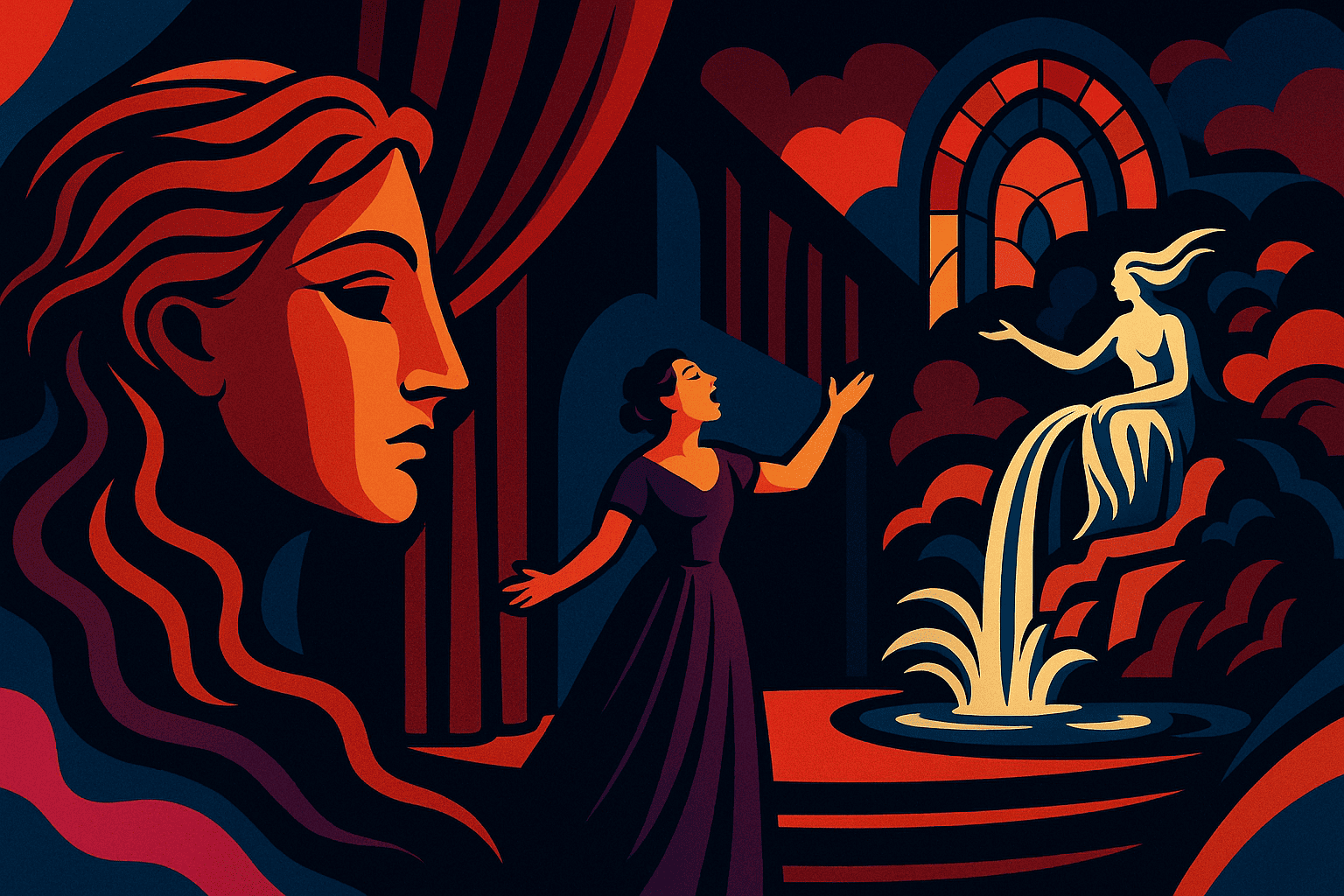
A Season of Rare Operatic Treasures
From 17 October to 1 November 2025, the 74th Wexford Festival Opera transforms Ireland’s south-east coast into a hub of myth, music, and discovery. Built around the theme “Myths & Legends,” this year’s programme connects centuries of operatic storytelling, exploring timeless human emotions through legendary tales.
For audiences at home and abroad, RTÉ once again steps in to make the festival accessible. Live broadcasts on RTÉ lyric fm and online streaming via RTÉ Culture ensure that Wexford’s magic resonates far beyond the National Opera House.
The Theme: Myths & Legends
Artistic Director Rosetta Cucchi has curated a season that highlights myth as a universal narrative tool. Just as Celtic folklore shapes Irish identity, operatic myths from across Europe reveal love, rivalry, and the quest for immortality as shared cultural touchstones.
The festival’s official announcement emphasised that the 2025 edition will “explore myths and legends as the very fabric of lyric opera,” a theme reflected not only in the mainstage productions but also in community events, youth projects, and visual identity.
Mainstage Programme
Le Trouvère (Giuseppe Verdi)
- Premiere: 17 October, 8.00pm
- Conductor: Marcus Bosch | Director: Ben Barnes
Verdi’s French version of Il trovatore premiered in Brussels in 1857. It enriches the familiar story with newly composed ballet music and score revisions. The opera centres on Manrique and the Comte de Lune, rivals in love for Leonora, in a tale of passion and betrayal. For audiences, it is a rare chance to experience Verdi’s genius through a lens that is seldom staged today.
Deidamia (George Frideric Handel)
- Premiere: 18 October, 7.30pm
- Conductor & Director: George Petrou
Composed in 1740 and premiered in 1741, Deidamia was Handel’s final Italian opera before turning his focus to oratorio. A blend of comic and tragic elements, it offers a title role that moves seamlessly from playful love to profound lament. This staging is a co-production with the Göttingen International Handel Festival, highlighting Wexford’s strong European collaborations.
The Magic Fountain (Frederick Delius)
- Broadcast: 25 October, 7.00pm (recorded performance)
- Conductor: Francesco Cilluffo | Director: Christopher Luscombe
Written in 1895 but unperformed during Delius’s lifetime, The Magic Fountain received its concert premiere in 1977 and a stage premiere in 1997. Set in a mythical, exotic landscape, it tells of a fountain granting eternal youth. With its dreamlike atmosphere, the opera embodies the festival’s theme of legend and longing.
Beyond the Mainstage
The 16-day programme extends well beyond three operas. Among its highlights:
- Wexford Factory: a professional development programme for emerging singers, répétiteurs, and stage managers, culminating in Rossini’s Il viaggio a Reims.
- Community Opera: involving local performers in creating an original operatic project.
- Pocket Opera / Opera Beag: condensed productions designed for new audiences.
- ShortWorks and recitals: chamber performances and vocal showcases across Wexford town.
These initiatives underline Wexford’s role as a festival of discovery — not only of forgotten repertoire but also of future talent.
Ireland’s Cultural Beacon
Wexford’s distinctive approach lies in reviving rarely performed works rather than presenting the standard canon. This curatorial bravery has earned the festival a reputation as one of Europe’s most innovative opera gatherings.
Partnership with RTÉ amplifies its impact, transforming what might have remained a local celebration into a national and international cultural event. For Ireland, Wexford Festival Opera is not simply entertainment — it is a showcase of artistic innovation, heritage, and global exchange.
Practical Information
- Dates: 17 October – 1 November 2025
- Venue: National Opera House, Wexford, Ireland
- Broadcasts: RTÉ lyric fm (Opera Night with Paul Herriott) and RTÉ Culture (streaming worldwide)
- Extras: city-wide concerts, lectures, and pop-up performances that bring opera into the streets of Wexford
Conclusion
With its theme of Myths & Legends, Wexford Festival Opera 2025 weaves together medieval romances, mythological heroines, and mystical landscapes. It offers audiences a chance to encounter Verdi, Handel, and Delius in contexts rarely experienced today, while also nurturing young artists and involving the wider community.
As autumn unfolds, Wexford once again proves that opera is not just about music — it is about storytelling, imagination, and the timeless power of myth.
